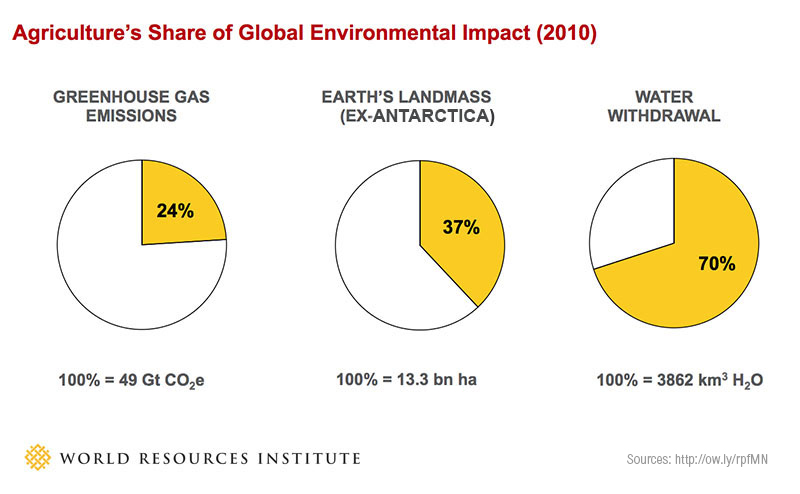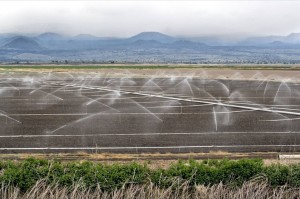Arguments for industrialized agriculture ignore the many negative ecological effects associated with it.

Climate Change: Reliance on fossil fuels every step of the way, from synthetic fertilizers, to the machines need to work the farms, to the fuel needed to transport harvested crops all around the world. As such mainstream agriculture is as significant contributor to global warming, accounting for about 12% of emissions.¹
Soil fertility: Synthetic fertilizers are necessary for production due to intensive methods. While they do lead to increased yields in the short run eventually they have a huge negative effect on soil fertility; over time more and more inputs are needed. The intensified use of land leads to soil compaction which increases erosion. Salinization(the accumulation of salts in soil) and waterlogging (oversaturation of soil with water) are also serious threats.

bhopal.net
Pesticides are the other main input on industrialized farms. As with fertilizers they are only effective in the short term as weeds and insects continuously adapt to become immune. Pesticides cause huge health problems for workers-both in the field and manufacturing. The Bhopal accident discussed by Ravi Rojan is one of the more deadly consequences of chemical manufacturing. Although accidents as major as this one are uncommon, they are not unheard of. Even when things run as planned constant exposure to pesticides cause many health problems for workers.
Water: Typically economists only look at a narrow set of agricultural inputs and outputs, omitting everything else. Water use is a huge issue that is often not discussed. For example they rarely take into account the issues of run-off from pesticides and fertilizers.
Many agricultural areas are located in arid places, causing a huge impact on water sources. In Mexico, for example, growing produce for export to meet the demand of Northern consumers has become a huge industry. While it has led to economic growth and an increase of jobs produce agriculture is incredibly water intensive. In San Quintin Valley in Baja CA it has depleted the water table leading to chronic shortages and poor quality, as Christian Zlolnski writes about.
Further reading:
The Lawn-Chemical Company and its Discontents
The Relationship of Land Tenure to Agricultural Practices and the Environment in El Salvador
Implications of sustainable agricultural intensification for family farming in Africa
- https://www.ipcc.ch/publications_and_data/ar4/wg3/en/ch8s8-3.html

